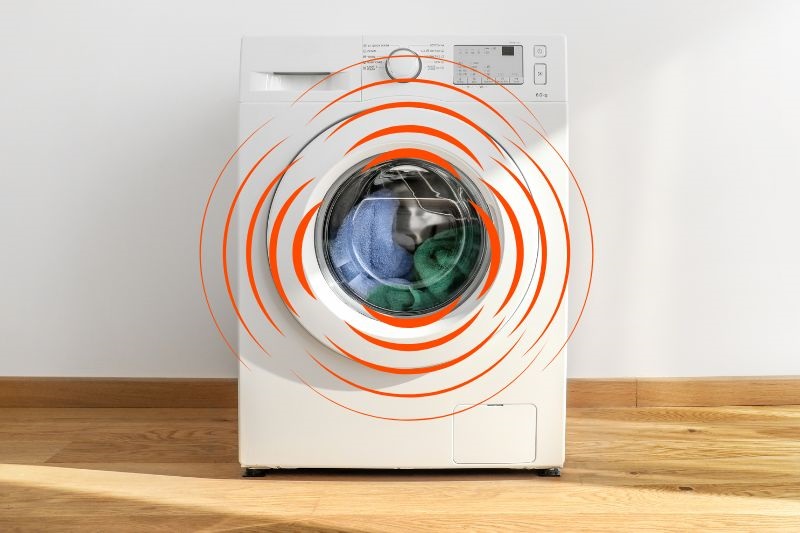Washing machines spin clothes very fast during the spin cycle, so it’s normal for them to vibrate somewhat.
However, if your washing machine is violently shaking, this could mean something is wrong.
In this article, we’ll look at what can contribute to a washing machine shaking, and how to keep it to a minimum.
Why Do Washing Machines Shake?
Here are some of the most common causes of a shaking washing machine.
1. Washing machine is not level on the ground
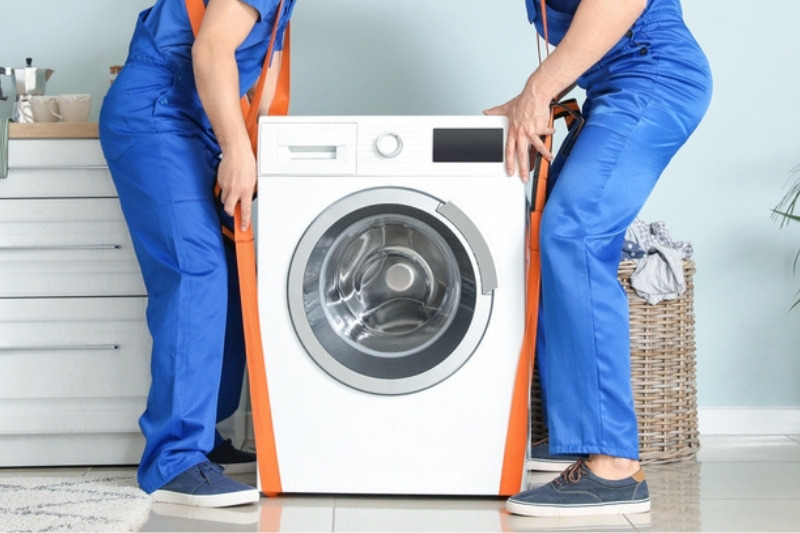
The first thing to check is that the washing machine is balanced on the floor.
Check that the washing machine is level on the ground and doesn’t rock when you push it. If one of the corners is too high, you can wedge something under it to level it out.
Sometimes the levelling legs or rubber feet can get worn out. These are on the base of the washing machine.
Consider using a spirit level to ensure that the machine is sitting evenly on the floor.
2. Unbalanced load
An unbalanced load can cause the washing machine to shake. For example, if you wash a heavy item such as a rug or pair of trainers, these can unbalance the machine.
You can balance the load by adding more items, but you should be careful not to overload the machine.
3. Transit bolts haven’t been removed
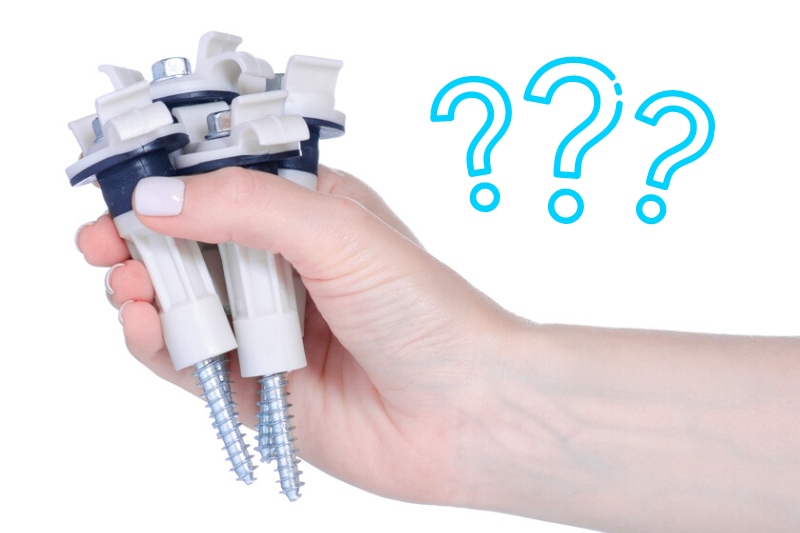
If your washing machine is new, it could be vibrating because transit bolts have not been removed.
The transit bolts are located on the back of the machine and work to stop the drum from moving while the washing machine is in transport.
If you’re using the washing machine and the drum can’t move, that energy will transfer to the rest of the machine and cause it to shake.
If you don’t remove the transit bolts before using the washing machine, you can damage it and void the warranty.
4. Internal fault
If checking the above three things hasn’t fixed the issue, one of the parts inside your washing machine may have come loose or worn out.
Some internal faults that can cause washing machines to shake include:
- Shock absorbers weakened or damaged
- Suspension springs damaged or loose
- Snubber ring worn out
Unless you’re experienced working with washing machines, you will probably want to get a professional to take a look at your washing machine, or consider buying a new model (see our recommendations here).
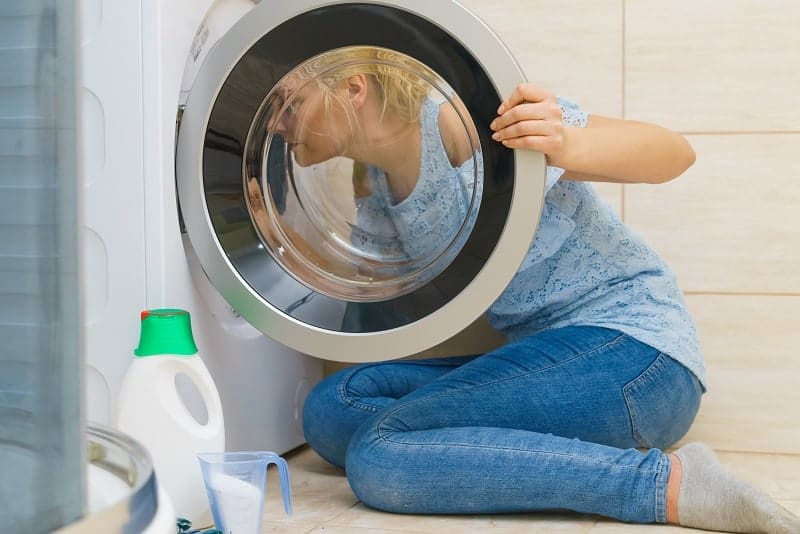
How Much Shaking Is Normal?
Front-loading washing machines, which are the most common type of washing machine in the UK, have higher spin speeds than top-loading models, and are therefore more likely to shake.
Front-loading machines often reach spin speeds of 1400 rpm, whereas the maximum spin speed on a top-loading machine can be just 750 rpm.
When the machine reaches its maximum spin speed during the spin cycle, some degree of shaking is normal. Front-loading washing machines usually shake a bit and are quite noisy during this part of the washing cycle.
However, if you notice any of the following, there may be an issue:
- Washing machine moving across the floor – If your machine is shaking so much that it moves across the floor, this suggests there could be a problem.
- Loud noises not caused by the normal vibration of the machine – If your machine is making a lot of noise and it isn’t simply the noise of regular vibration during the spin cycle, there might be an issue with the machine.
- Sudden change in vibration or noise level – If your washing machine was a bit shaky when you first bought it but has now become like an earthquake, something is probably up!
- Error codes on the display – Most washing machines these days have digital displays that will show an error code if the machine detects an issue with things like uneven loads, which can cause excessive vibration.
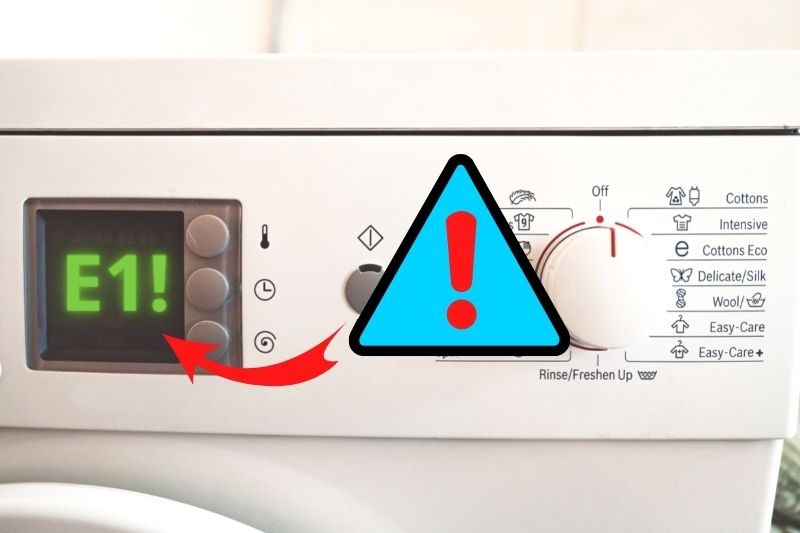
What to Do If Your Machine Is Shaking Too Much
If you feel like your washing machine is shaking more than it should be, try to identify the cause.
Check the following:
- Is the washing machine level? If not, make sure it’s level on the floor.
- Are you washing balanced loads? If not, be careful each time you load the machine to make sure it is well balanced.
- Have the transit bolts been removed? If not, remove them.
- Is the machine displaying any error codes? If it is, check the user manual or online to see what the error code and what to do about it.
- Is there an internal fault? If you know what you’re doing, you could inspect your machine yourself for things like damaged shock absorbers or suspension springs. Otherwise, getting a professional to look at your machine is a good idea.
If you haven’t been able to identify the issue yourself and your certain that the level of shaking is excessive, it’s best to call a professional.
If your washing machine is very old and the shaking is getting worse, it might be better to invest in a new machine rather than paying for it to be repaired. If this is the case, see our guide to the best washing machines in the UK for some recommendations.

In The Wash is your guide to the best laundry and cleaning products, tips and tricks. Our mission is to solve the UK’s cleaning and laundry dilemmas!
